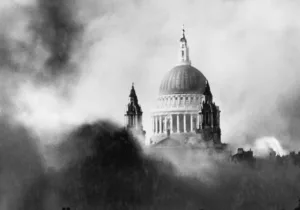White House Chief of Staff John Kelly’s comments on the Civil War and continuing controversies over Confederate statues come amid the Reformation’s 500th anniversary. The topics are not unrelated. At the Washington Peace Conference in early 1861 an anti-Lincoln delegate denounced the Republican election victory as a religious zealotry comparable to the English Puritan revolt of the 1600s. After the war a foreign visitor to America is said to have asked who won and was told Massachusetts. Abolitionism was justifiably equated with New England Puritanism and its descendants.
Kevin Phillips’ The Cousins Wars proposes that the American Civil War was the third of three similar conflicts, starting with the English Civil War and then the American Revolution. Each pitted middle class Puritanism against more hierarchical societies led by landed gentry and established churches. In each case the more egalitarian Puritans defeated the hierarchies. Democracy, industry and societies centered on rights and equality resulted.
Illustrating this insight is a scene from the 1999 film Ride With the Devil about Quantrill’s Raiders’ infamous raid on Yankee-settled Lawrence, Kansas. One Confederate raider explains to another that the thrifty and literate New Englanders with their schools, churches, shops, printing presses, libraries and ceaseless industry will become unstoppable if not destroyed. They are like a humming dynamo that churns and churns.
Alec Ryrie’s excellent new book Protestants: The Faith That Made the Modern World documents this insight historically. Protestantism is decentralized, often disorganized, prone to endless schism, and often seems suicidal. Yet it’s proven across centuries to be endlessly entrepreneurial, resilient, adaptable and self-empowering. It’s focus on personal spiritual rebirth and direct relationship with God makes it intrinsically egalitarian and destabilizing to hierarchical and authoritarian societies.
Protestantism has not converted the whole world but it has socially and politically reshaped the world. Almost every society in its official politics mouths the rhetoric of human equality even when mocking its claims in practice. Modern industrialized middle class consumer democracies are the fruit of the Reformation. Five hundred years ago a monk without social status challenged as an individual the mighty powers of his day, claiming God and the Bible as his authority. The world for better or worse was never the same.
Luther didn’t invent this authority for the individual. It was modeled by the Hebrew prophets and taught by the earliest scripture, that each person is created by God, accountable to God, and by divine grace has access to God. It’s the most revolutionary message in human history. Many have tried to suppress it but none have extinguished it.
The Southern Confederacy never really stood a chance against the Puritan northern dynamo that was most animated by the hyper Reformation spirit. Stratified societies with rigid class structures based on serfdom, peonage or slavery have been the historical universal norm. But when in direct conflict, the dynamic egalitarian challenger usually if not always prevails. And even when technically losing it often wins partial longterm victories. Ongoing dramatic evangelical church growth in authoritarian China likely holds surprises for the future.
There is in our historical moment a pessimism about the Reformation-generated egalitarian democratic experiment. Supposedly it is fragile and in retreat. Chinese, Russian and Islamist autocrats may believe history smiles on them. Other despots have smiled the same smile. But the Reformation’s ennoblement of the God-created individual has a power that many despots don’t recognize until too late.







 Sponsor a student for Christianity & National Security 2024
Sponsor a student for Christianity & National Security 2024